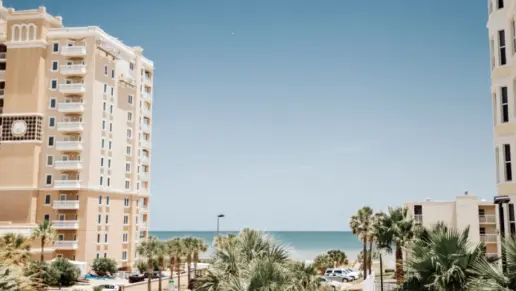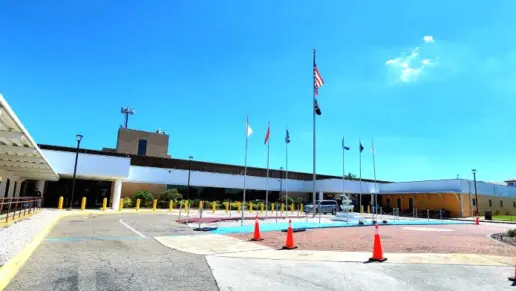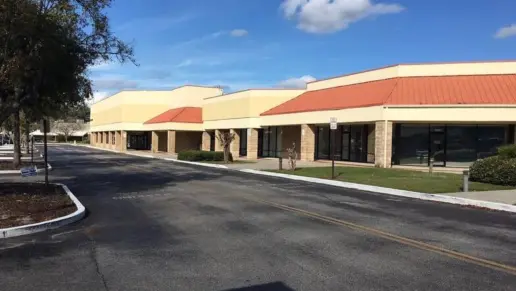About Fellowship House
Fellowship House is a private nonprofit mental health and substance abuse recovery facility in Miami, Florida. They cater to individuals struggling with severe and persistent psychiatric disabilities, including those with co-occurring substance abuse disorders.
This facility is committed to helping clients achieve lasting recovery and improve their quality of life through various community-based service options. Most of these services are designed for clients involved with the criminal justice system, including before and after adjudication.
Their outpatient treatment for mental health and co-occurring disorders includes consultations, assessments, treatment plan reviews, and group, individual and family counseling. The counseling sessions help clients understand their addiction, develop effective coping strategies, and build healthier relationships.
Clients enjoy personalized care tailored to their unique conditions thanks to their dedicated and compassionate care team. They offer assessment, care coordination and case management services for those leaving the criminal justice system who have post-release mental health or co-occurring disorders.
These services help clients regain independence, improve their lives, and reduce the risk of re-arrest, homelessness, and mental health crises. In addition, they offer jail diversion programs for those dealing with mental health issues who are charged with nonviolent felonies. This service diverts clients from the criminal justice system into comprehensive community-based treatment and support services.
One great thing about this facility is their comprehensive aftercare services. For instance, their continuum of residential settings is designed to help clients transition from more intensive care to independent living.
These include both supervised, transitional residential treatment and permanent supportive housing. Staff in this residence provide personalized support, helping clients with daily living skills like self-care and communication.
In addition, they help clients with job skills assessment, development, placement and coaching while also providing work- site accommodations and supportive follow-through services. Staff and members of the care team liaise with employers to ensure clients fulfill their duties.
The broader services help clients improve their social and everyday living skills, which facilitate seamless integration into the community and fast-tracking addiction recovery. Past clients had an overwhelmingly impressive experience with the facility, with most referring to them as “lifesavers,” citing a compassionate care team, among others.
Rehab Score
Other Forms of Payment
Medicaid is a state based program that helps lower-income individuals and families pay for healthcare. Medicaid covers addiction treatment so those enrolled can use their coverage to pay for rehab. When a program accepts Medicaid the client often pays very little or nothing out of their own pocket.
Self-pay involves paying for treatment out of your own pocket. You can use savings or credit, get a personal loan, or receive help from family and friends to fund your treatment. If you don't have insurance or your insurance plan doesn't cover a specific program, self-pay can help ensure you still get the care you need.
Financial aid can take many forms. Centers may have grants or scholarships available to clients who meet eligibility requirements. Programs that receive SAMHSA grants may have financial aid available for those who need treatment as well. Grants and scholarships can help you pai for treatment without having to repay.
Sliding scale payments are based on a client's income and family size. The goal is to make treatment affordable to everyone. By taking these factors into account, addiction recovery care providers help ensure that your treatment does not become a financial burden to you or your family, eliminating one barrier to care.
Medicare is a federal program that provides health insurance for those 65 and older. It also serves people under 65 with chronic and disabling health challenges. To use Medicare for addiction treatment you need to find a program that accepts Medicare and is in network with your plan. Out of pocket costs and preauthorization requirements vary, so always check with your provider.
Private insurance refers to any kind of healthcare coverage that isn't from the state or federal government. This includes individual and family plans offered by an employer or purchased from the Insurance Marketplace. Every plan will have different requirements and out of pocket costs so be sure to get the full details before you start treatment.
Addiction Treatments
Levels of Care
Treatments
The goal of treatment for alcoholism is abstinence. Those with poor social support, poor motivation, or psychiatric disorders tend to relapse within a few years of treatment. For these people, success is measured by longer periods of abstinence, reduced use of alcohol, better health, and improved social functioning. Recovery and Maintenance are usually based on 12 step programs and AA meetings.
Drug rehab in Florida provides quality treatment to help individuals overcome dependency related to a wide range of addictive substances. Programs address both the physical and mental aspects of addiction in order to help you make a full recovery.
Many of those suffering from mental health also suffer from alcohol and other addiction illnesses. Fellowship House helps adults with severe persistent psychiatric issues and also have co-occurring substance abuse disorders. They offer supportive opportunities for vocational and social rehabilitation.
A combined mental health and substance abuse rehab has the staff and resources available to handle individuals with both mental health and substance abuse issues. It can be challenging to determine where a specific symptom stems from (a mental health issue or an issue related to substance abuse), so mental health and substance abuse professionals are helpful in detangling symptoms and keeping treatment on track.
Opioid rehabs specialize in supporting those recovering from opioid addiction. They treat those suffering from addiction to illegal opioids like heroin, as well as prescription drugs like oxycodone. These centers typically combine both physical as well as mental and emotional support to help stop addiction. Physical support often includes medical detox and subsequent medical support (including medication), and mental support includes in-depth therapy to address the underlying causes of addiction.
Programs


Clinical Services
Research clearly demonstrates that recovery is far more successful and sustainable when loved ones like family members participate in rehab and substance abuse treatment. Genetic factors may be at play when it comes to drug and alcohol addiction, as well as mental health issues. Family dynamics often play a critical role in addiction triggers, and if properly educated, family members can be a strong source of support when it comes to rehabilitation.
Group therapy is any therapeutic work that happens in a group (not one-on-one). There are a number of different group therapy modalities, including support groups, experiential therapy, psycho-education, and more. Group therapy involves treatment as well as processing interaction between group members.
In individual therapy, a patient meets one-on-one with a trained psychologist or counselor. Therapy is a pivotal part of effective substance abuse treatment, as it often covers root causes of addiction, including challenges faced by the patient in their social, family, and work/school life.
Life skills trainings involve all the skills a person must have in order to function successfully in the world. These include time management, career guidance, money management, and effective communication. Truly successful addiction recovery is based on the ability to not only live substance-free, but to thrive. Life skills teaches the practical necessities of functioning in society, which sets clients up for success in life, and therefore sobriety.
Contact Information
5711 South Dixie Highway
Miami, FL 33143


